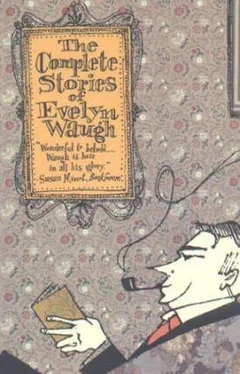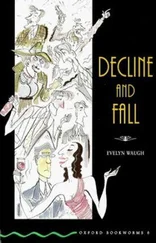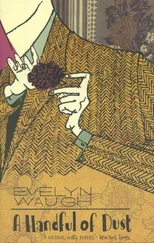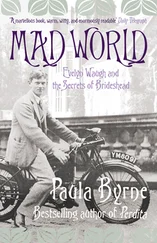Evelyn Waugh - The Complete Stories Of Evelyn Waugh
Здесь есть возможность читать онлайн «Evelyn Waugh - The Complete Stories Of Evelyn Waugh» весь текст электронной книги совершенно бесплатно (целиком полную версию без сокращений). В некоторых случаях можно слушать аудио, скачать через торрент в формате fb2 и присутствует краткое содержание. Год выпуска: 1998, ISBN: 1998, Жанр: Классическая проза, на английском языке. Описание произведения, (предисловие) а так же отзывы посетителей доступны на портале библиотеки ЛибКат.
- Название:The Complete Stories Of Evelyn Waugh
- Автор:
- Жанр:
- Год:1998
- ISBN:0-316-92546-2
- Рейтинг книги:3 / 5. Голосов: 1
-
Избранное:Добавить в избранное
- Отзывы:
-
Ваша оценка:
- 60
- 1
- 2
- 3
- 4
- 5
The Complete Stories Of Evelyn Waugh: краткое содержание, описание и аннотация
Предлагаем к чтению аннотацию, описание, краткое содержание или предисловие (зависит от того, что написал сам автор книги «The Complete Stories Of Evelyn Waugh»). Если вы не нашли необходимую информацию о книге — напишите в комментариях, мы постараемся отыскать её.
The Complete Stories Of Evelyn Waugh — читать онлайн бесплатно полную книгу (весь текст) целиком
Ниже представлен текст книги, разбитый по страницам. Система сохранения места последней прочитанной страницы, позволяет с удобством читать онлайн бесплатно книгу «The Complete Stories Of Evelyn Waugh», без необходимости каждый раз заново искать на чём Вы остановились. Поставьте закладку, и сможете в любой момент перейти на страницу, на которой закончили чтение.
Интервал:
Закладка:
“And you, too,” he said. “I am delighted to see that you also have been doing well.”
“Doing well? At the moment I have exactly three francs in the world.”
“My dear fellow, people with three francs in the world do not eat caviare at Larne.”
Then for the first time he noticed Boris’s frayed clothes. He had only known him in a war-worn uniform and it had seemed natural at first to find him dressed as he was.
Now he realized that these were not the clothes which prosperous young men usually wear.
“My dear friend,” he said, “forgive me for laughing. I didn’t realize….. Come and dine with me this evening at my flat, and we will talk about what is to be done.”
“And so,” concluded Boris, “I became the manager of ‘The Kremlin.’ If I had not gone to Larne that day it is about certain we should never have met!
“My friend said that I might have a part in his motor business, but that he thought anyone who could spend his last 300 francs on one meal was ordained by God to keep a restaurant.
“So it has been. He financed me. I collected some of my old friends to work with us. Now, you see, I am comparatively a rich man.”
The last visitors had paid their bill and risen, rather unsteadily, to go. Boris rose, too, to bow them out. The daylight shone into the room as they lifted the curtain to go out.
Suddenly, in the new light, all the decorations looked bogus and tawdry; the waiters hurried away to change their sham liveries. Boris understood what I was feeling.
“I know,” he said. “It is not Russian. It is not anything even to own a popular night club when one has lost one’s country.”
LOVE IN THE SLUMP
I
The marriage of Tom Watch and Angela Trench-Troubridge was, perhaps, as unimportant an event as has occurred within living memory. No feature was lacking in the previous histories of the two young people, in their engagement, or their wedding, that could make them completely typical of all that was most unremarkable in modern social conditions. The evening paper recorded:
“This has been a busy week at St. Margaret’s. The third fashionable wedding of the week took place there this afternoon, between Mr. Tom Watch and Miss Angela Trench-Troubridge. Mr. Watch, who, like so many young men nowadays, works in the city, is the second son of the late Hon. Wilfrid Watch of Holyborne House, Shaftesbury; the bride’s father, Colonel Trench-Troubridge, is well known as a sportsman, and has stood several times for Parliament in the Conservative interest. Mr. Watch’s brother, Captain Peter Watch of the Coldstream Guards, acted as best man. The bride wore a veil of old Brussels lace lent by her grandmother. In accordance with the new fashion for taking holidays in Britain, the bride and bridegroom are spending a patriotic honeymoon in the West of England.”
And when that has been said there is really very little that need be added.
Angela was twenty-five, pretty, good-natured, lively, intelligent and popular—just the sort of girl, in fact, who, for some mysterious cause deep-rooted in Anglo-Saxon psychology, finds it most difficult to get satisfactorily married. During the last seven years she had done everything which it is customary for girls of her sort to do. In London she had danced on an average four evenings a week, for the first three years at private houses, for the last four at restaurants and night clubs; in the country she had been slightly patronizing to the neighbours and had taken parties to the hunt ball which she hoped would shock them; she had worked in a slum and a hat shop, had published a novel, been bridesmaid eleven times and godmother once; been in love, unsuitably, twice; had sold her photograph for fifty guineas to the advertising department of a firm of beauty specialists; had got into trouble when her name was mentioned in gossip columns; had acted in five or six charity matinées and two pageants, had canvassed for the Conservative candidate at two General Elections, and, like every girl in the British Isles, was unhappy at home.
In the Crisis years things became unendurable. For some time her father had shown an increasing reluctance to open the London house; now he began to talk in a sinister way about “economies,” by which he meant retiring permanently to the country, reducing the number of indoor servants, stopping bedroom fires, cutting down Angela’s allowance and purchasing a mile and a half of fishing in the neighbourhood, on which he had had his eye for several years.
Faced with the grim prospect of an indefinitely prolonged residence in the home of her ancestors, Angela, like many a sensible English girl before her, decided that after her two unhappy affairs she was unlikely to fall in love again. There was for her no romantic parting of the ways between love and fortune. Elder sons were scarcer than ever that year and there was hot competition from America and the Dominions. The choice was between discomfort with her parents in a Stately Home or discomfort with a husband in a London mews.
Poor Tom Watch had been mildly attentive to Angela since her first season. He was her male counterpart in about every particular. Normally educated, he had, after taking a Third in History at the University, gone into the office of a reliable firm of chartered accountants, with whom he had worked ever since. And throughout those sunless city afternoons he looked back wistfully to his undergraduate days, when he had happily followed the normal routine of University success by riding second on a borrowed hunter in the Christ Church “grind,” breaking furniture with the Bullingdon, returning at dawn through the window after dances in London, and sharing dingy but expensive lodgings in the High with young men richer than himself.
Angela, as one of the popular girls of her year, used to be a frequent visitor to Oxford and to the houses where Tom stayed during the vacation, and as the bleak succession of years in his accountant’s office sobered and depressed him, Tom began to look upon her as one of the few bright fragments remaining from his glamorous past. He still went out a little, for an unattached young man is never quite valueless in London, but the late dinner parties to which he went sulkily, tired by his day’s work and out of touch with the topics in which the débutantes attempted to interest him, served only to show him the gulf that was widening between himself and his former friends.
Angela, because (as cannot be made too clear) she was a thoroughly nice girl, was always charming to him, and he returned her interest gratefully. She was, however, a part of his past, not of his future. His regard was sentimental but quite unaspiring. She was a piece of his irrecapturable youth; nothing could have been more remote from his attitude than to think of her as a possible companion for old age. Accordingly her proposal of marriage came to him as a surprise that was by no means welcome.
They had left a particularly crowded and dull dance, and were eating kippers at a night club. They were in the intimate and slightly tender mood which always developed between them when Angela had said in a gentle voice:
“You’re always so much nicer to me than anyone else, Tom; I wonder why?” and before he could deflect her—he had had an unusually exacting day’s business and the dance had been stupefying—she had popped the question.
“Well, of course,” he had stammered, “I mean to say there’s nothing I’d like more, old girl. I mean, you know, of course I’ve always been crazy about you… But the difficulty is I simply can’t afford to marry. Absolutely out of the question for years, you know.”
“But I don’t think I should mind being poor with you, Tom; we know each other so well. Everything would be easy.”
Читать дальшеИнтервал:
Закладка:
Похожие книги на «The Complete Stories Of Evelyn Waugh»
Представляем Вашему вниманию похожие книги на «The Complete Stories Of Evelyn Waugh» списком для выбора. Мы отобрали схожую по названию и смыслу литературу в надежде предоставить читателям больше вариантов отыскать новые, интересные, ещё непрочитанные произведения.
Обсуждение, отзывы о книге «The Complete Stories Of Evelyn Waugh» и просто собственные мнения читателей. Оставьте ваши комментарии, напишите, что Вы думаете о произведении, его смысле или главных героях. Укажите что конкретно понравилось, а что нет, и почему Вы так считаете.












